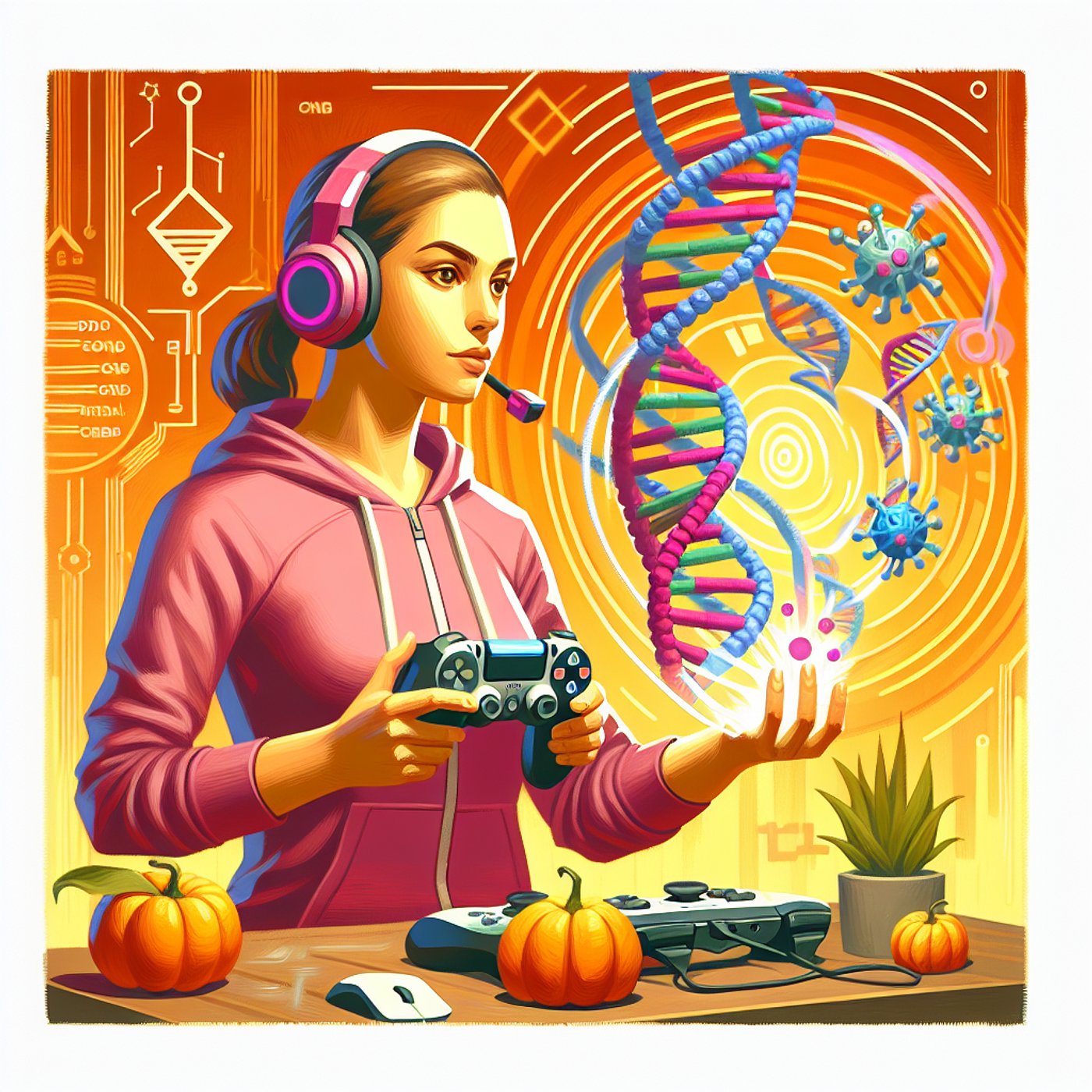
Gaming for a Cure: Citizen Science in Cancer Research
Description
In this episode, we explore the innovative intersection of gaming and cancer research with our expert guest. Discover how citizen science games engage everyday players in solving real scientific problems, particularly in the fight against cancer. We discuss the concept of citizen science games, where players tackle challenges that mimic actual scientific scenarios, thus contributing valuable insights to researchers. Learn about the popular game 'Foldit,' which allows players to assist in understanding protein folding, a critical aspect of drug development. By harnessing the problem-solving skills of gamers, these games democratize the research process and can lead to breakthroughs that traditional methods may overlook. Join us as we delve into this fascinating approach to integrating gaming with medical research and its potential to revolutionize how we tackle complex health challenges.
Show Notes
## Key Takeaways
1. Citizen science games engage players in solving real scientific problems, particularly in cancer research.
2. Games like 'Foldit' allow players to contribute to understanding protein folding, helping in drug development.
3. This approach democratizes research and encourages innovative solutions from non-scientists.
4. Integrating gaming with medical research can lead to faster and more effective breakthroughs.
## Topics Discussed
- Citizen science games
- Cancer research and gaming
- The role of players in scientific discovery
- Examples of games like 'Foldit'
- The future of healthcare innovation
Topics
Transcript
Host
Welcome back to the podcast! Today, we're diving into a fascinating topic: the intersection of gaming and cancer research. Have you ever thought that playing video games could actually contribute to scientific discoveries? Well, according to our guest, it can!
Expert
Absolutely! I'm excited to share how citizen science games can engage players in real scientific problems, particularly in the fight against cancer.
Host
That sounds incredible! Can you explain what you mean by citizen science games?
Expert
Sure! Citizen science games are designed to involve everyday people in scientific research. They present players with challenges or puzzles that mimic real-world scientific problems. The idea is to harness the problem-solving skills inherent in gamers to help scientists tackle complex issues.
Host
So, it's like combining gaming with actual research! How does that work in practice?
Expert
Great question! Think of it this way: when players engage with a game, they are navigating through various scenarios, making choices, and discovering new strategies to achieve a goal. In cancer research, scientists are often faced with similar challenges, like figuring out how to target cancer cells without harming healthy ones.
Host
That’s a perfect analogy! It sounds like both scientists and gamers are sort of on this quest to solve a puzzle.
Expert
Exactly! Just like in a game, where you might have to find the right path to level up, scientists must find the right sequence of actions to advance medical research. The beauty of citizen science games is that they allow anyone to participate, even if they don’t have a scientific background.
Host
Can you give us an example of a game that does this?
Expert
Certainly! One example is 'Foldit,' a game where players help scientists understand protein folding. Players manipulate protein structures to find the most stable configurations, which can help in drug development for diseases like cancer.
Host
That’s amazing! So, everyday players can contribute to serious scientific advancements just by playing a game?
Expert
Yes, and it’s incredibly powerful! Players often come up with innovative solutions that scientists might not have considered. It democratizes the research process and opens up new pathways for discovery.
Host
And it also keeps players engaged, right? They’re having fun while making a difference!
Expert
Precisely! Games are designed to be engaging, and that drives persistent exploration and experimentation. This can lead to breakthroughs that might take traditional research methods a much longer time to achieve.
Host
What a unique approach to cancer research! Any closing thoughts?
Expert
Just that as we think about the future of medicine, integrating citizen science and gaming could fundamentally change how we solve some of the toughest challenges. It’s a call to action for both gamers and scientists alike!
Host
Thank you for sharing your insights today! This has been a fascinating conversation about the potential of gaming to impact real-world science.
Expert
Thank you for having me! It’s been a pleasure.
Host
And thank you to our listeners for tuning in! Until next time, keep exploring and playing!
Create Your Own Podcast Library
Sign up to save articles and build your personalized podcast feed.